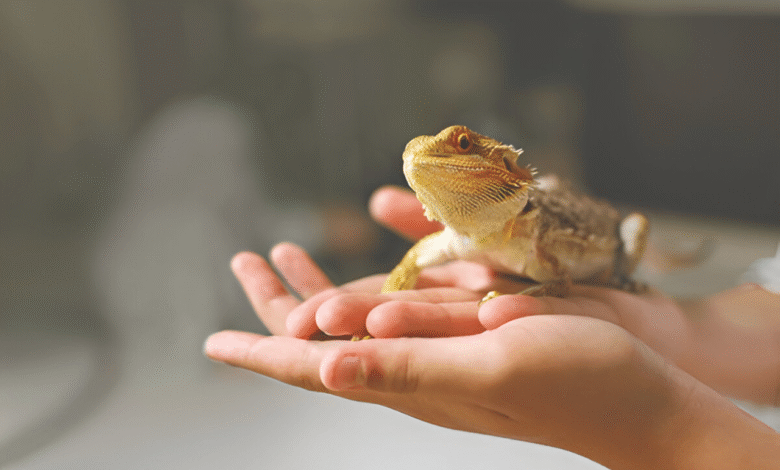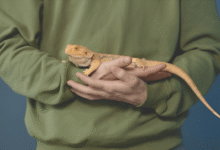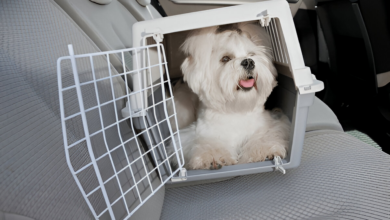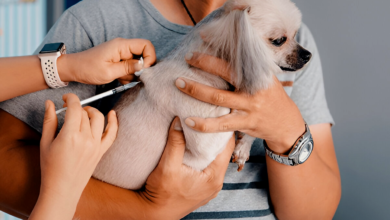
Signs Your Exotic Pet Needs a Vet Visit: Don’t Miss These
Signs your exotic pet needs a vet visit. Spot lethargy, appetite loss, or breathing trouble. Early detection saves lives find an exotic vet now.
Recognizing the signs your exotic pet needs a vet visit is crucial for any responsible owner. Unlike cats and dogs, exotic pets such as reptiles, birds, and small mammals often hide symptoms of illness until their condition becomes severe. Their unique biology and survival instincts make it challenging to detect health issues early, which is why knowing the warning signs can be life-saving. Whether it’s a sudden change in appetite, unusual behavior, or physical abnormalities, being proactive about your pet’s health ensures they receive timely care.
Exotic pets require specialized veterinary attention, and overlooking subtle symptoms can lead to serious complications. Many owners mistakenly assume their pet is fine as long as it’s active, but lethargy, weight loss, or irregular droppings can indicate underlying problems. By understanding the key signs your exotic pet needs a vet visit, you can prevent minor issues from escalating into emergencies.
Signs Your Exotic Pet Needs a Vet Visit
Changes in Appetite or Drinking Habits
One of the first signs your exotic pet needs a vet visit is a sudden change in eating or drinking patterns. Many exotic animals, such as reptiles and birds, are highly sensitive to environmental and health changes. A loss of appetite could indicate metabolic disorders, infections, or stress. Conversely, excessive thirst may signal diabetes or kidney disease. For herbivores like rabbits or guinea pigs, refusing food for even 12 hours can be life-threatening due to their delicate digestive systems. Carnivorous pets, such as ferrets, may stop eating due to dental issues or gastrointestinal blockages.
Unusual Weight Loss or Gain
Weight fluctuations in exotic pets often indicate underlying health issues. Sudden weight loss can result from parasites, malnutrition, or organ failure, while unexplained weight gain may suggest fluid retention or tumors. Regularly weighing your pet helps track their health. Birds, for example, can lose weight rapidly due to infections like psittacosis. Reptiles may retain weight if they’re impacted or suffering from metabolic bone disease. A digital gram scale is ideal for monitoring small pets, as minor changes can be significant.
Lethargy or Reduced Activity
Exotic pets are typically active when healthy. If your pet becomes lethargic, sleeps excessively, or shows little interest in surroundings, it may be ill. Reptiles that stay in one spot for days or birds that stop vocalizing need immediate attention. Lethargy can stem from infections, low temperatures (in reptiles), or heart disease. For small mammals like hedgehogs, inactivity during their usual active hours is a major red flag. Always compare their behavior to their normal routine.
Abnormal Discharges or Swelling
Unusual discharges from the eyes, nose, or mouth often indicate infections or respiratory issues. Birds with nasal discharge may have avian influenza, while reptiles with bubbly saliva could have a respiratory infection. Swelling around joints or the abdomen may signal abscesses or organ enlargement. Check for crusty eyes, runny noses, or labored breathing. Small mammals with eye discharge may have dental problems pushing on tear ducts. Any persistent swelling or fluid buildup warrants a vet visit.
Skin, Feather, or Scale Abnormalities
Healthy skin, feathers, and scales should appear smooth and intact. Patchy fur loss in mammals, flaky skin in reptiles, or ragged feathers in birds suggest health problems. Mites, Fungal infection, or nutritional deficiencies often cause these symptoms. Reptiles with stuck shed may have humidity issues, while birds plucking feathers could be stressed or sick. Mammals with scabs or sores may have dermatitis or parasites. Early treatment prevents worsening conditions.
Changes in Droppings or Urination
Monitoring your pet’s droppings is crucial. Diarrhea, bloody stool, or lack of feces can indicate parasites, bacterial infections, or blockages. Reptiles with chalky urates may be dehydrated, while birds with discolored droppings could have liver issues. Small mammals like ferrets with black, tarry stools may have internal bleeding. Conversely, straining to urinate in reptiles or mammals may signal bladder stones. Document any changes in frequency, color, or consistency.
Breathing Difficulties
Labored breathing, wheezing, or open-mouth breathing (in reptiles) are emergency signs. Respiratory infections are common in exotic pets and can quickly become fatal. Birds bobbing their tails while breathing or reptiles gasping need urgent care. Humidity and temperature imbalances often cause respiratory distress. If your pet shows rapid or shallow breaths, consult a vet immediately. Delayed treatment can lead to pneumonia.
Behavioral Changes
Sudden aggression, excessive hiding, or repetitive movements may indicate pain or neurological issues. A normally social pet becoming withdrawn or a nocturnal animal being active during the day are warning signs. Birds screaming excessively or reptiles glass-surfing (repeatedly rubbing against enclosure walls) may be stressed or ill. Any drastic shift in temperament should be evaluated.
Visible Injuries or Lameness
Exotic pets can injure themselves from falls, fights, or improper handling. Swollen limbs, limping, or reluctance to move suggest fractures or sprains. Small mammals may overgrow their teeth, causing mouth injuries. Reptiles with soft or deformed shells may have metabolic bone disease. Birds with drooping wings need immediate attention. Never ignore physical injuries, as they can lead to infections.
Seizures or Uncoordinated Movements
Recognizing the Warning Signs
Watch for sudden muscle spasms, loss of balance, or uncontrolled twitching – these neurological symptoms often indicate serious health issues. Head tilting, circling behavior, or inability to right themselves suggest possible nervous system damage. More subtle signs include tremors, limb weakness, or unusual body postures that persist over time.
Potential Causes by Species
Reptiles often experience seizures from calcium deficiencies (MBD) or overheating in improper habitats. Birds may develop neurological symptoms from heavy metal poisoning (zinc/lead) or nutritional deficiencies. Small mammals like sugar gliders can show uncoordinated movements due to hypoglycemia or traumatic injuries.
Emergency Response
Immediately isolate your pet in a safe, padded space if seizures occur and contact an exotic vet immediately. Prevent neurological issues by maintaining proper temperature/humidity, balanced nutrition, and toxin-free environments. Regular wellness exams help detect early metabolic or neurological problems before they become severe.
Read More: 10 Best Pet Birds for Beginners & Their Care Needs
Conclusion
Understanding the signs your exotic pet needs a vet visit could mean the difference between life and death for your unique companion. Exotic animals have evolved to hide weakness, making it essential for owners to stay vigilant about subtle changes in behavior, appetite, or appearance. By recognizing these warning signals early, you can seek professional care before conditions become severe, giving your pet the best chance at recovery.
Ultimately, being a responsible exotic pet owner means going beyond basic care it requires keen observation and prompt action. Whether it’s unusual lethargy, breathing difficulties, or skin abnormalities, never hesitate to consult an exotic animal veterinarian when you spot potential signs your exotic pet needs a vet visit. Your attentiveness today can ensure many happy, healthy years together with your extraordinary companion.
What are the most common signs my exotic pet needs a vet?
Watch for appetite changes, lethargy, abnormal droppings, breathing difficulties, and unusual skin/feather conditions.
How often should exotic pets see a veterinarian?
Most need annual check-ups, but older pets or those with health issues may require biannual visits.
Can I treat my exotic pet’s illness at home?
Never attempt home treatment without veterinary guidance – many medications for cats/dogs are toxic to exotics.
Why do exotic pets hide their illnesses?
It’s a survival instinct – in the wild, showing weakness makes them targets for predators.
Where can I find an exotic pet veterinarian?
Search for “exotic animal vet near me” or check the Association of Exotic Mammal Veterinarians directory.








One Comment